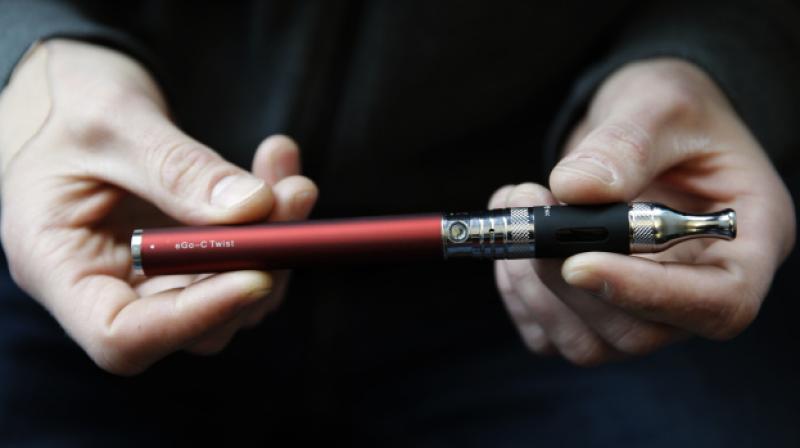E-cigarettes linked to high risk of teen smoking: study
some adolescents use e-cigarettes as a smoking cessation aid.

Los Angeles: Teens who use e-cigarettes regularly are more likely to become frequent and heavy cigarette smokers, a new study has found.
E-cigarette vaping is reported by 37 per cent of US 10th-grade adolescents and is associated with subsequent initiation of combustible cigarette smoking, said researchers from University of Southern California in the US. Whether individuals who vape and transition to combustible cigarettes are experimenting or progress to more frequent and heavy smoking is unknown.
In addition, because some adolescents use e-cigarettes as a smoking cessation aid, adolescent smokers who vape could be more likely to reduce their smoking levels over time. Researchers analysed data from surveys administered to 10th grade students in ten public high schools during 2014-2015.
Surveys included e-cigarette and combustible cigarette use questions from prior research, which were used to determine baseline vaping and baseline and follow-up past 30-day smoking frequency and heaviness. Students with complete vaping and smoking data at baseline and follow-up constituted the analytic sample of 3,084 participant with 54 per cent girls and baseline average age, was 15.5 years.
The prevalence rates of past 30-day vaping and smoking were low overall. Smoking frequency at follow-up was proportionately greater with successively higher levels of baseline vaping. Similar trends were found for smoking heaviness. Adjusting for baseline smoking, each increment higher on the 4-level baseline vaping frequency continuum was associated with proportionally higher odds of smoking at a greater level of frequency and heaviness by follow-up.
The positive association between baseline vaping and follow-up smoking frequency was stronger among baseline non-smokers than baseline infrequent and frequent smokers; similar trends were found for smoking heaviness. "The role of nicotine and generalisability of these results to other locations and ages, longer follow-up periods, and non-self-report assessments are unknown and merit further inquiry," researchers said.
"The transition from vaping to smoking may warrant particular attention in tobacco control policy," they said. The study was published in the the journal JAMA.

